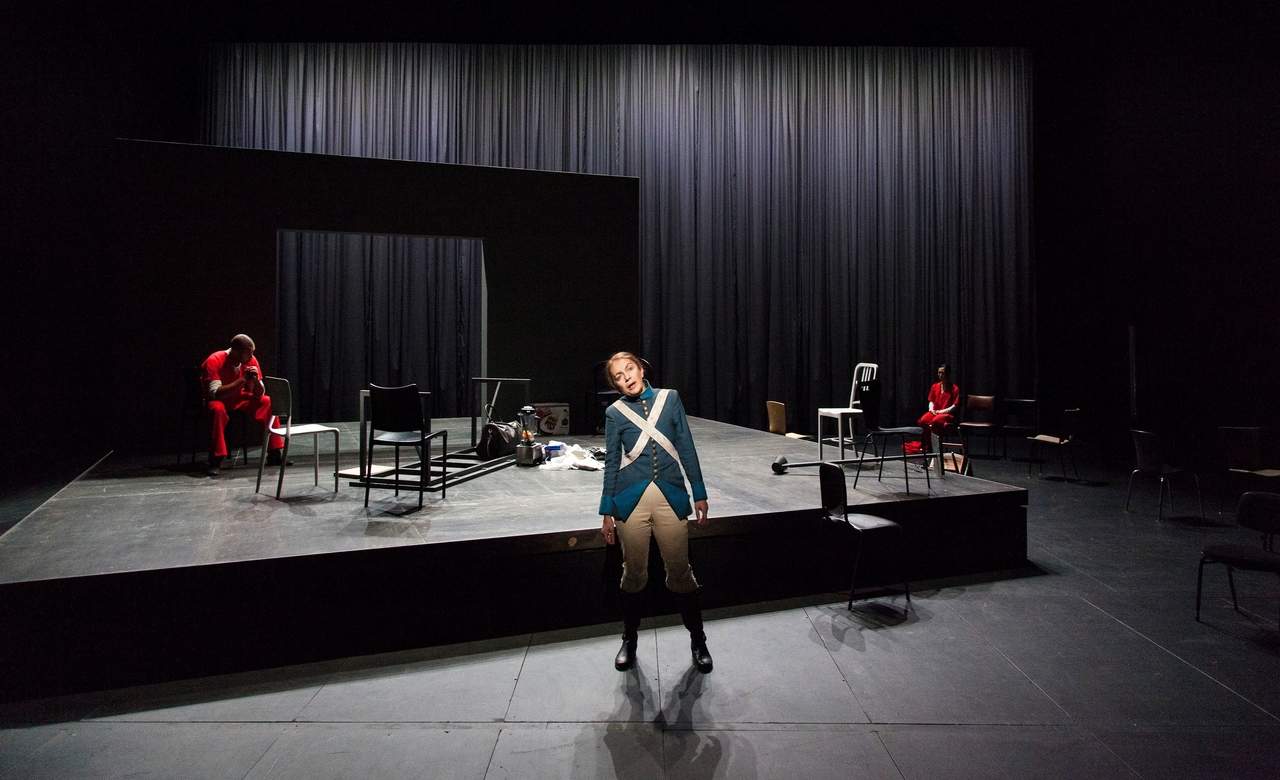I Am a Miracle - Malthouse Theatre
Declan Greene's newest play is a full-frontal assault on injustice throughout history.
Overview
Declan Greene’s I Am a Miracle is a searing assault on injustice throughout the ages. It’s a risky and at-times unwieldy combination of three separate strands of story: the impending execution of African-American inmate Marvin Lee Wilson, the 18th century Dutch colony of Suriname, and the claustrophobic world of a modern home.
It’s a small ensemble cast, with actors Bert LaBonté and Melita Jurisic joined onstage by singer Hana Lee Crisp. Once Labonte addresses the death-row inmate Wilson only minutes before his death the focus quickly shifts towards Jurisic, who performs the story of a young Dutch soldier on a doomed expedition upriver to subdue rebel slaves. This long stretch of the play could easily stagnate in the hands of a lesser performer but Jurisic is in utter control as she navigates the extended, prosaic narrative.
Director Matt Lutton’s program notes indicate that Jurisic’s character is “rehearsing” this story but any aspect of that intriguing metatheatrical interpretation is unsupported in performance, beyond the upturned chairs and tables on the set, which could resemble the broken furniture of an abandoned rehearsal room.
One obvious question is why use this story – are Australian audiences so inured to the horrors of their own colonial history that they need to apprehend them fresh, through the exotic lens of the brutal occupation of Suriname? I don’t think so: the choice provokes us into seeing these acts of brutality as part of a systemic constellation, not as isolated incidents.
Later in a surprising shift towards naturalism, the characters inhabit a time and place that could easily be modern Melbourne. Greene’s writing lets out measured revelations until the full horror of the couple’s situation becomes clear. This feels like the most compelling part of the play – it’s so gripping that it risks making the rest of the work feel like a less interesting carapace by contrast, even if it’s one that holds it in place.
Jung wrote of the Roman Empire’s embrace of Christianity that “whenever some social or psychological monstrosity is created, a compensation comes along in defiance of all legislation and all expectation.” Where I Am a Miracle succeeds most is as an expression of enduring desire for the same kind of rebooted society, and in its interrogation of the cyclical, enduring nature of systemic oppression. It’s not the role of theatre to lay out blueprints and solutions; instead, plays like this give a voice to our need for enduring hope if those changes are going to succeed.
Image by Pia Johnson.





